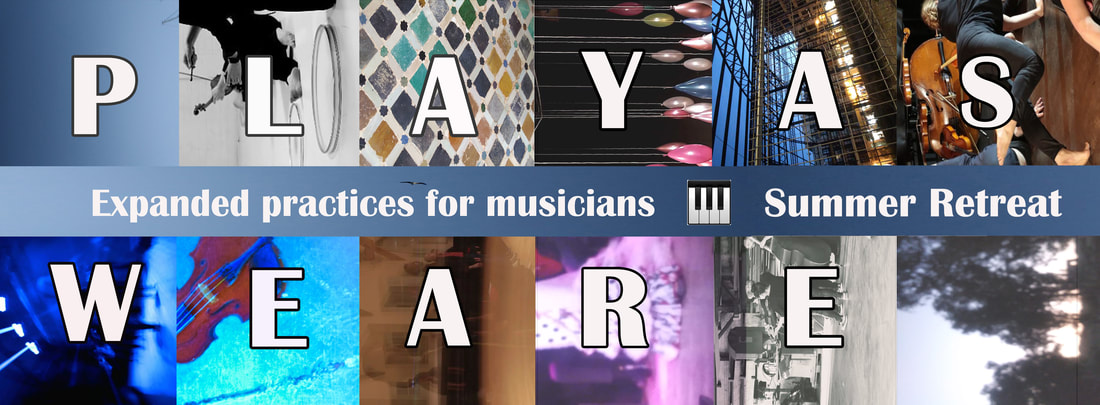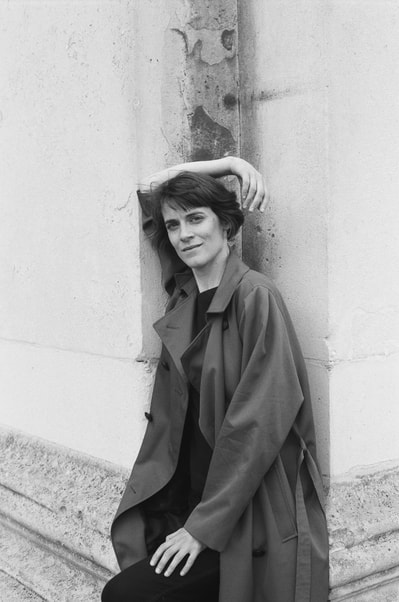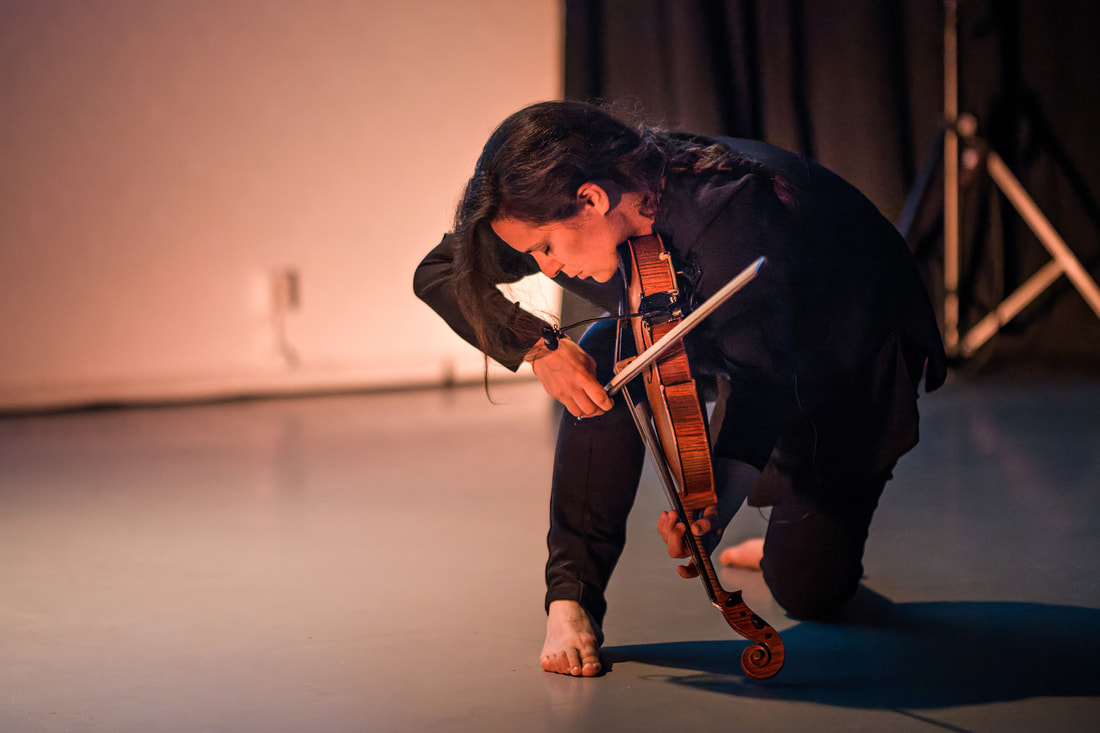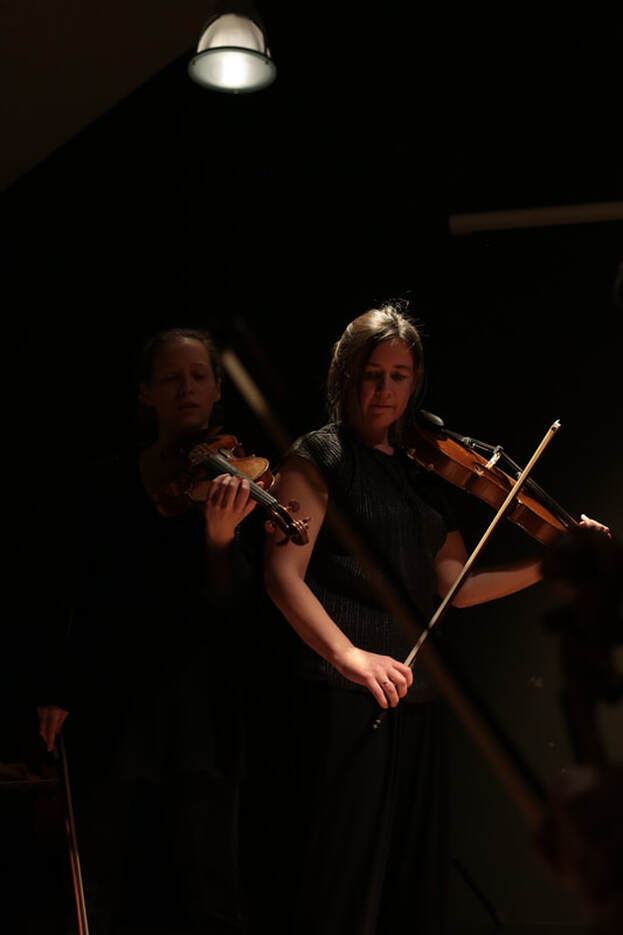~For more information about the Spring Workshops go here~
A retreat to explore Technique, Creativity and Ensemble through Movement and Awarness practices.
3 days of workshops, individual practice and coaching, sharings, discussions and performances.
Led by Alexandra Baybutt, Alex Welch, Maya Felixbrot and guest practitioners - check out the full list here.
Led by Alexandra Baybutt, Alex Welch, Maya Felixbrot and guest practitioners - check out the full list here.
complete schedule |
| ||||||
Practical information
Dates: 7, 8, 9 July 2023
Where: Splendor, Nieuwe Uilenburgerstraat 116, 1011 LX Amsterdam, Netherlands.
Costs: 200 Euro for 3 days / 75 Euro for one day / 30 Euro per class / performances: sliding scale.
Price details
3 days - 250 Euro, include: morning (10-13), noon (14-16) and afternoon (16-18) classes, the evening gathering and a warm, vegetarien, dinner
1 day - 75 Euro: include all 3 classes and the evening gathering
1 class - 30 Euro: include one class - morning / noon / afternoon
The evening gatherings are open for the general public. Entrance is on a sliding scale, 7-15 Euro.
A price reduction is available for participants travelling from further away, or anyone who feels like a reduction would make their participation more possible. In some cases, reduction may be possible in exchange for volunteering during the workshop period. If you think a reduction might be helpful for you, please contact us.
How to book? Pay online here / for bank transfer or other payment methods contact us.
Dinner each day we will eat together a warm, vegetarian dinner in Splendor. It is included in the full 3 days price. If you're attending just one day you can still join and pay separately.
Child-care if you need child-care for the time of the retreat, please let us know. With a few other participants interested, we will be able to organize a babysitter and a comfortable space.
Feel free to contact us with any question [email protected]
We - three musicians-movers - are presenting this three day workshop retreat to bring together musicians working across different genres, instruments, contexts, interests and questions. Together and individually we will explore approaches to movement with the aim of expanding practices in support of playing, rehearsing, composing, creating and performing - all styles welcome. These practical workshops will include connecting deeply to sensation, taking time to open awareness and attention to connect more deeply with one’s artistic practice, instrument, other artists, and the space around and between us.
Why? We have been developing this multifaceted work exploring music/sound and movement for over ten years. We believe a concentrated workshop format offers an opportunity to share and play with people both familiar and new to us, to top up resources and refresh inspiration. Personal and professional practice is enriched through encountering similarly motivated peers, and we are grateful to be holding our workshop at Splendor, renowned for its inclusive, expansive approach to performance and production.
Movement?
This retreat revolves around sound and movement, their (re)connection, shared ideas and support of each other and of our practices as musicians.
Why is movement so important for musicians?
Movement is an integral part of music making. Music is created by the movement of sound waves in space, from the giver (musicians) to the receiver (audience). To play music we move, not only our hands but our entire bodies take part in the action. When playing we move together with other bodies - those of our ensemble members, bodies of instruments, bodies of the audience.
We play to and within a space, whose characteristics influence us and we influence the perception of it. When composing we put together notes and design the way they will move together, and the way musicians might move to play them, or the way they will move the listener.
Expanding one’s practice through movement has the potential to make playing itself more comfortable, physically and mentally, and to develop one’s technique and expression. Fundamentally, it releases creative possibilities, from the communicative potential of a written piece, to improvisation, instant composition, or interdisciplinary creation.
And of course, attending to movement supports healthy practice for longevity.
With a holistic, integrative approach, we wish to connect musicians of different kinds with, to and through movement itself. Together we will explore what this awareness and different perspective on technique and creation might bring to your practice.
Why? We have been developing this multifaceted work exploring music/sound and movement for over ten years. We believe a concentrated workshop format offers an opportunity to share and play with people both familiar and new to us, to top up resources and refresh inspiration. Personal and professional practice is enriched through encountering similarly motivated peers, and we are grateful to be holding our workshop at Splendor, renowned for its inclusive, expansive approach to performance and production.
Movement?
This retreat revolves around sound and movement, their (re)connection, shared ideas and support of each other and of our practices as musicians.
Why is movement so important for musicians?
Movement is an integral part of music making. Music is created by the movement of sound waves in space, from the giver (musicians) to the receiver (audience). To play music we move, not only our hands but our entire bodies take part in the action. When playing we move together with other bodies - those of our ensemble members, bodies of instruments, bodies of the audience.
We play to and within a space, whose characteristics influence us and we influence the perception of it. When composing we put together notes and design the way they will move together, and the way musicians might move to play them, or the way they will move the listener.
Expanding one’s practice through movement has the potential to make playing itself more comfortable, physically and mentally, and to develop one’s technique and expression. Fundamentally, it releases creative possibilities, from the communicative potential of a written piece, to improvisation, instant composition, or interdisciplinary creation.
And of course, attending to movement supports healthy practice for longevity.
With a holistic, integrative approach, we wish to connect musicians of different kinds with, to and through movement itself. Together we will explore what this awareness and different perspective on technique and creation might bring to your practice.
So what are we actually going to do? Here are some examples.
After a meditation exercise, like focusing on physical sensations, enabling us to slow down and increase our awareness of physical sensations and thoughts, we might explore how activating the lower part of your body can support your tone and posture when playing musical scales. Through playful contrasts of dynamic qualities, a connection from this lower body might appear through your spine, chest, arms and skull. You might be encouraged to play or sing through intending the quality of your movement itself - gently, forcefully, luxuriously, spaciously, grotesquely to discover more colours of expression. We might run through the space together, alone, playing, not playing, falling, rolling, hearing. We might play music lying down, or use seeing to inform the shape, length and texture notes. We might whisper the biographies of our instruments and our relationships with them, imagine and create from new ones.
The morning sessions (10:00-13:00) will be classes about body, instrument, sound and movement, where we will dive deep into specific techniques and ideas connecting these four elements.
The time after a lunch break in the noon session (14:00-16:00) will be dedicated to applying these ideas to your own practice, inspiration and sharing practices. You can come to the workshop days with an idea of what you’d like to work on. This may be a specific piece you're studying, or making/composing, a more broad idea or question, or a wish to collaborate and share with others. We will be available to facilitate and coach your needs. Happening at the same time, there will be inspiration sessions with participants and guests sharing their practice and ideas.
The afternoon session (16:00-18:00) is dedicated to restorative and mindful practices, like meditation, dance and music improvisation and breath work.
In the evening gathering, from 19:00 onwards there will be public performances and sharings by guests as well as space available to the workshop participants to share their work.
After a meditation exercise, like focusing on physical sensations, enabling us to slow down and increase our awareness of physical sensations and thoughts, we might explore how activating the lower part of your body can support your tone and posture when playing musical scales. Through playful contrasts of dynamic qualities, a connection from this lower body might appear through your spine, chest, arms and skull. You might be encouraged to play or sing through intending the quality of your movement itself - gently, forcefully, luxuriously, spaciously, grotesquely to discover more colours of expression. We might run through the space together, alone, playing, not playing, falling, rolling, hearing. We might play music lying down, or use seeing to inform the shape, length and texture notes. We might whisper the biographies of our instruments and our relationships with them, imagine and create from new ones.
The morning sessions (10:00-13:00) will be classes about body, instrument, sound and movement, where we will dive deep into specific techniques and ideas connecting these four elements.
The time after a lunch break in the noon session (14:00-16:00) will be dedicated to applying these ideas to your own practice, inspiration and sharing practices. You can come to the workshop days with an idea of what you’d like to work on. This may be a specific piece you're studying, or making/composing, a more broad idea or question, or a wish to collaborate and share with others. We will be available to facilitate and coach your needs. Happening at the same time, there will be inspiration sessions with participants and guests sharing their practice and ideas.
The afternoon session (16:00-18:00) is dedicated to restorative and mindful practices, like meditation, dance and music improvisation and breath work.
In the evening gathering, from 19:00 onwards there will be public performances and sharings by guests as well as space available to the workshop participants to share their work.
What we hope you might get from our time together on this retreat
- New tools tools / insights / practices from Laban Bartenieff Movement System, meditation, dance, somatic practices
- Connection with other musicians and like-minded practitioners
- A space to reflect, nourish, share, perform, discuss
- Gain insight into your own movement patterns and habits
- Sense how practices from meditation and mindfulness might work for you
- How to incorporate movement/awareness in your daily musical/artistic practice and rituals
- How movement can enhance ensemble practice, as well as cultivate attention towards one another, to any environment, to audiences near or far
- Surprise and challenge yourself with new movement and playing possibilities
- Inspiration and appreciation of movement/body/perception/space in all aspects of musicianship
Who we are
|
Alexandra Baybutt - Somatic movement educator and Laban/Bartenieff Movement analyst (since 2010), dance artist and postdoctoral researcher, working in the UK and Europe. Teaches performing artists in Higher Education and conservatoires in London. Alexandra teaches on modular programmes in movement analysis and somatic studies in the Netherlands and Rome, previously in Belgium, Edinburgh and China. Works interdisciplinarily as an artist, as well as supports choreographic work as a dramaturg. Alexandra has been working with Maya since 2013 through co-teaching, and dramaturgy for Moving Strings. Currently researching for the European Dancehouse Network on the theme of equity. Alexandra has been meditating regularly since 2013, and is trained to facilitate yoga asana and pranayama inclusively.
https://alexandrabaybutt.co.uk/ |
|
Maya Felixbrot - Musician, Violinist and composer, Somatic movement educator and Laban/Bartenieff Movement analyst (since 2022). Ensemble and solo performer, founder and member of Moving Strings and Zvov, founder and curator of Screen Dive. Collaborates in interdisciplinary creations with dancers, theatre makers, visual artists and filmmakers.
www.pninax.com |
|
|
Alex Welch
Viola player, freelancing with Metropole Orkest, session musician for TV, radio and musicals. Member of Moving Strings since 2018. Since 2021 Maya and I have been researching the intersection of instrumental technique, movement practices and mindfulness. I have been meditating regularly since 2018. |









